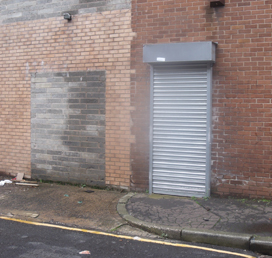Counterfeit goods are an attack against society requiring an international response, according to a report by European Union bodies. The report, by the EU policing agency Europol and the EU’s Intellectual Property Office (EUIPO), points out links between intellectual property (IP) crime and other forms of crime, ‘including money laundering, document fraud, cybercrime, fraud, drug production and trafficking and terrorism’.
The relationship can go two ways, the report shows. Other forms of crime can be used to facilitate IP crime. “For example, some organised crime groups (OCGs) produce fraudulent documents to sell their counterfeit goods as legitimate ones. In that case, IP crime is the supported criminal activity.” Or, criminals might engage in counterfeiting to generate profit that is used for other types of serious and organised crime, such as drug trafficking. An idea of IP crime as a victimless crime is misguided and can result in a lack of attention, the report warns.
The report goes into cases of faked pharmaceutical products; illegal weapons; forced labour; and several kinds of frauds – excise, food, and VAT; besides corruption and money laundering. On drug trafficking, the report gives a case of drugs not offered publicly, but rather via an ‘invitation’ to trusted individuals who accredited a minimum sale with a significant volume. The OCG (organised crime group) only accepted cash, using a branch office of a parcel company to manage shipments and collections. The manager at the company’s office was also a member of the OCG.
Under ‘non-EU cases’, the report files how Northern Ireland paramilitary groups ‘have been repeatedly found to trade on counterfeit and illicit goods as a low-risk source of income’, such as cigarettes and Premier League football shirts.
Spanish police inquiries revealed the cover up of the crimes, investigators identified where the illegal platform for the distribution of the drugs was, and the shops, gyms and bars the OCG used to contact prospective clients. Police established that the medicines the OCG stored for later wholesale distribution were sourced from as far afield as Mexico, China, Portugal, Bulgaria and Romania.
In another case, organised crime illegally distributed pay-TV content. The criminals imported decoders from China, designed the firmware used to decrypt the TV signals and distributed it to the final customers via dedicated web pages and internet forums. The criminals also used Internet Protocol television (IPTV) technology to illicitly offer more than 1600 TV channels.
As the report concludes, people who download illegal movies, music or computer games are frequently targeted by ransomware or have their personal information stolen. Forged administrative documents provide evidence of the authenticity or origin of counterfeit goods. Document fraud is often linked to another crime commonly committed by counterfeiting OCGs: excise fraud or VAT fraud. OCGs trafficking of counterfeit goods often fail to declare the VAT values of the goods.
For the 89-page report visit the Europol website.
Comment
Phil Lewis, Director General of the UK-based Anti-Counterfeiting Group (ACG) says: “International crime gangs are devastating our businesses, jobs and our economies. But more than this they are using the cash they make to threaten our families and communities by selling flammable clothing, fake medicines, food, alcohol, toys and a growing range of hazardous household products. This has never been more illuminated than in the current pandemic crisis, when counterfeiters have been selling useless fake face masks, testing kits and even virus remedies.
“They have no moral conscience and are using our money to fund transnational crime. Instead our money should be being used to properly protect our communities, to re-build our economies and support vital public services.”
Separately, the ACG wrote recently to Priti Patel, Home Secretary; Labour Leader Keir Starmer; Andy Burnham, Mayor of Greater Manchester and the Labour Policy Forum plus law enforcement about retail shops in Cheetham Hill in Manchester open during lockdown to sell counterfeit goods besides fake COVID-19 related products such as facial coverings and hand sanitisers. Cheetham Hill (pictured) was featured in the November 2019 print edition of Professional Security magazine.









